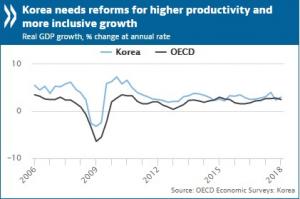Finance & Economics
World Bank Rwanda Economic Update
Rwanda’s annual growth reached 6.1% in the second half of 2017, thanks to improved export performance, revitalized agriculture and resumption of growth in private consumption, according to the 12th edition of the World Bank Rwanda Economic Update launched on June 21. The growth is expected to accelerate to 7.2% in 2018 and to 7.5% in 2019.
- Read more
- 315 reads
Crime will no longer pay: Council agrees new rules on mutual recognition of freezing and confiscation orders
On 20 June 2018, the Council, following a provisional agreement with the European Parliament, agreed on new rules concerning the mutual recognition of freezing and confiscation orders. The new regulation aims to ensure the effective freezing and confiscation of criminal assets across the EU. This will contribute to making the EU more secure by combating the financing of crime, including terrorist activities.
- Read more
- 310 reads
Denmark IMF Executive Board Concludes 2018 Article IV Consultation
On June 20, 2018 the Executive Board of the International Monetary Fund (IMF) concluded the Article IV consultation with Denmark, and considered and endorsed the staff appraisal without meeting.
- Read more
- 305 reads
The Challenges of Urbanization Dampen Growth Opportunities in Bamako, Conakry and Niamey: WBG Report
While the cities of West Africa grapple with large migratory flows, consisting chiefly of young people, they must tackle the many challenges associated with this rapid urbanization and concentrate on building competitive economies and providing adequate urban services, says the World Bank’s fifth edition of the Economic Update for Guinea, Mali and Niger, released on June 20.
- Read more
- 274 reads
Countries should focus on labour market policies to help refugees and improve coordinated actions to tackle illegal immigration
Migration flows to OECD countries have dropped slightly for the first time since 2011, with around 5 million new permanent migrants in 2017, down from 5.3 million in 2016. This trend is mainly due to a significant decrease in humanitarian migration as a result of the decline in new asylum applications, with 1.2 million applications in 2017 compared to 1.6 million in 2016, according to a new OECD report.
- Read more
- 264 reads
EU and New Zealand launch trade negotiations
Today, in the capital of New Zealand, Wellington, Commissioner for Trade Cecilia Malmström and New Zealand's Minister for Trade David Parker officially launched talks for a comprehensive and ambitious trade agreement.
- Read more
- 306 reads
IMF Staff Concludes Visit to Haiti
A mission of the International Monetary Fund (IMF), led by Mr. Chris Walker, visited the northern region of Haiti (Cap Haitien, Milot, Caracol, Ouanaminthe) and Port-au-Prince from June 3 to 15, 2018 to conduct the 2018 Article IV consultation and to hold discussions on the first review of Haiti under its Staff Monitored Program (SMP).
- Read more
- 312 reads
Trade in fake Italian goods costs economy billions of euros
Global trade in fake Italian goods such as luxury handbags, watches, foodstuffs and car parts is taking a bite out of Italy’s economy equivalent to around 1-2% of GDP in terms of lost sales, according to a new OECD report.
- Read more
- 304 reads
IMF Executive Board Concludes 2018 Article IV Consultation with St. Lucia
GDP growth reached 3 percent in 2017, sustained by robust activity in several sectors. Favorable external conditions, coupled with hotel expansions and the addition of new flights, generated a strong recovery in tourism, with stay-over arrivals rising by 11 percent, the fastest growth in the Caribbean.
- Read more
- 296 reads
Human Rights
Fostering a More Humane World: The 28th Eurasian Economic Summi

Conscience, Hope, and Action: Keys to Global Peace and Sustainability

Ringing FOWPAL’s Peace Bell for the World:Nobel Peace Prize Laureates’ Visions and Actions

Protecting the World’s Cultural Diversity for a Sustainable Future

Puppet Show I International Friendship Day 2020


